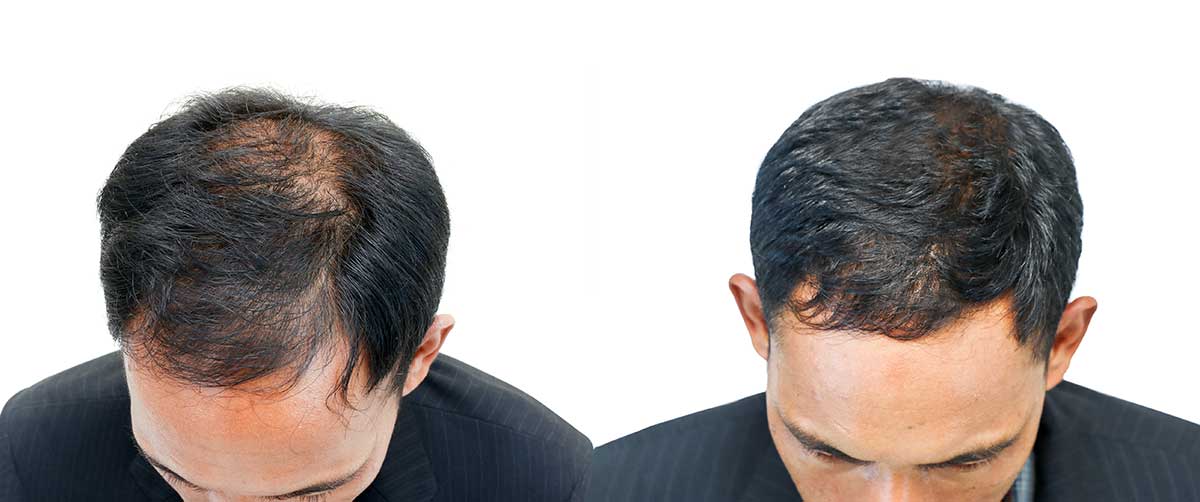
Hair loss is a common experience, which makes hair loss treatment a common procedure. Everyone loses hair, but clinically, hair loss involves losing more than 100 hairs a day in thinning or bald patches. The most common type of hair loss – hereditary male- and female-pattern baldness – affects 80 million Americans. The condition often reverses on its own, especially when caused by physical stress, such as poor nutrition, or a diet with too much vitamin A and not enough protein. However, it sometimes takes a hair loss treatment to reverse the damage. That’s where we can help.
Hair loss can have several causes, which means hair loss treatment must address a range of possibilities. People in otherwise good health can suffer from autoimmune disease-caused hair loss, scarring hair loss, and ringworm, a highly contagious fungal infection that can cause balding. Additionally, dietary changes, weight loss of more than 15 pounds, hormonal changes, and great emotional stress, can cause hair loss.
When you visit a doctor for hair loss treatment, they will conduct a careful examination of the scalp, as well as hair on other parts of the body. Accompanying questions about physical health, lifestyle, and life events will help diagnose the cause. A biopsy of the hair’s roots and a blood test might also be done to rule out serious medical conditions. Because there are so many causes for hair loss, a diagnosis may require more than one visit. Once you receive a diagnosis, there are several hair loss treatment options, but we’ve described some of the most common below.